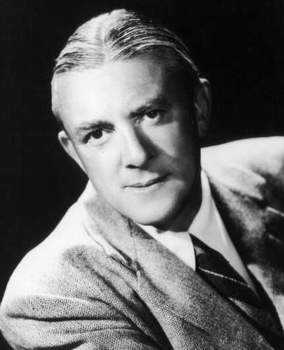
James Hilton was an English novelist and screenwriter. He is best remembered for his novels Lost Horizon, Goodbye, Mr. Chips and Random Harvest, as well as co-writing screenplays for the films Camille (1936) and Mrs. Miniver (1942), the latter earning him an Academy Award.

Edward Morgan Forster was an English author, best known for his novels, particularly A Room with a View (1908), Howards End (1910) and A Passage to India (1924).

William Clark Styron Jr. was an American novelist and essayist who won major literary awards for his work.
Shangri-La is a fictional place in Tibet's Kunlun Mountains (昆仑山), described in the 1933 novel Lost Horizon by English author James Hilton. Hilton portrays Shangri-La as a mystical, harmonious valley, gently guided from a lamasery, enclosed in the western end of the Kunlun Mountains. Shangri-La has become synonymous with any earthly paradise, particularly a mythical Himalayan utopia – an enduringly happy land, isolated from the world. In the novel, the people who live in Shangri-La are almost immortal, living hundreds of years beyond the normal lifespan and only very slowly aging in appearance.

The Clayhanger Family is a series of novels by Arnold Bennett, published between 1910 and 1918. Though the series is commonly referred to as a "trilogy", and the first three novels were published in a single volume, as The Clayhanger Family, in 1925, there are actually four books. All four are set in the "Five Towns", Bennett's thinly disguised version of the six towns of the Staffordshire Potteries.

Benighted is a 1927 novel by the British writer J.B. Priestley. Priestley's second published novel, the story explores the post-First World War disillusionment that Britain felt during the time period. A number of travelers are forced to take shelter at an old Welsh country house during a storm. Because the book was published in the United States in 1928, it won’t enter the public domain in the United States until 2024 in accordance with United States copyright law.

These Lovers Fled Away is a 1955 novel by the British writer Howard Spring. While some events take place in the same fictitious Yorkshire town as the 1957 novel Time and the Hour, the two books have no other connection. The title is taken from the poem The Eve of St Agnes by John Keats.
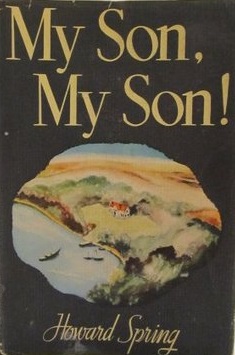
My Son, My Son is a 1938 novel by the British writer Howard Spring.

Time and the Hour is a 1957 novel by the British writer Howard Spring. It is set in the Bradford area. The title is taken from a line of Shakespeare's Macbeth.

If the Gods Laugh is a 1925 romantic adventure novel by the British writer and explorer Rosita Forbes. It is set against the backdrop of the Italian colonization of Libya.

King's Mate is a 1928 romantic adventure novel by the British writer and explorer Rosita Forbes. While staying in Morocco a young Englishwoman becomes lost in the desert and is rescued by a mysterious figure known as the White Sheik, who proves to be an Englishman.
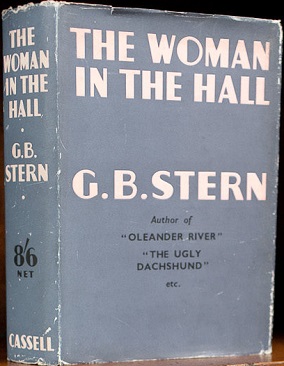
The Woman in the Hall is a 1939 novel by the British writer Gladys Bronwyn Stern. The lifestyle of a confidence trickster mother has a psychologically disturbing effect on her daughter who she uses as an essential part in her various swindles.

Long Lost Father is a 1933 novel by the British writer Gladys Bronwyn Stern. A woman's long-lost wastrel father comes back into her life after many years absence.

The Day They Robbed the Bank of England is a 1959 crime novel by the British writer John Brophy.

Turn the Key Softly is a 1951 novel by the British writer John Brophy. It follows the lives of three women in the first dozen hours after they are released from prison.
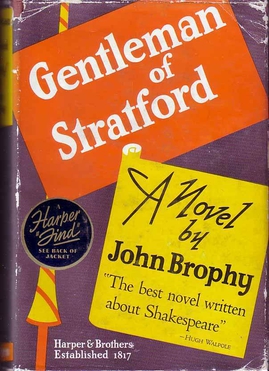
Gentleman of Stratford is a 1939 historical novel by the British writer John Brophy. It is a fictional account of the life of William Shakespeare. Brophy carefully researched the novel to use existing documentary evidence about the playwright. The novel was published in the United States by Harper. It helped launch Brophy's career as a novelist. Author Hugh Walpole described it as "the best biographical novel yet written about Shakespeare".

Immortal Sergeant is a 1942 war novel by the British writer John Brophy. The novel is set during the North African campaign of the Second World War and seen through the eyes of a British corporal fighting across the Libyan desert whose comrade, a sergeant, is killed.

Waterfront is a 1934 crime drama novel by the British writer John Brophy. It is set in his native Liverpool amongst the world of dockworkers.
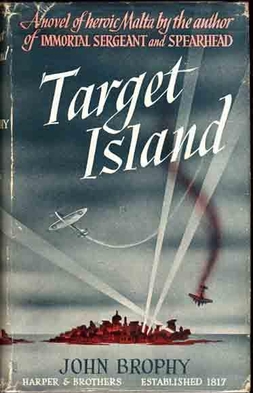
Target Island is a 1944 war novel by the British writer John Brophy. It was published by Collins in London and Harper in New York. It takes place during the Axis Siege of Malta during the Second World War. While popular, it did not repeat the great success of Brophy's previous novel Immortal Sergeant set during the North African Campaign. John Hampson writing in The Spectator gave it a fairly negative review alongside Vicki Baum's Berlin Hotel and noted "here again are major and minor figures, love-affairs, raids, and alarms, amid the panoply of modern war. And yet nothing has been added to the epic of Malta that we didn't already know. However, its film possibilities will be obvious to the cinema fan". In the event the novel was not adapted for the screen unlike several others of Brophy's work, although much of its settings and themes featured in the 1953 film Malta Story.
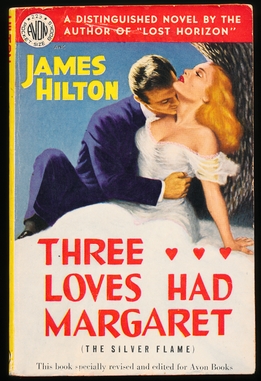
The Silver Flame is a 1928 novel by the British writer James Hilton. The original British publisher was Butterworth. In 1949 it was published in the United States in by Avon under the alternative title Three Loves Had Margaret. It has been described as the last of his "apprentice novels" before he emerged as a major international author. The story takes place on a Cotswold estate between 1896 and 1926.


















